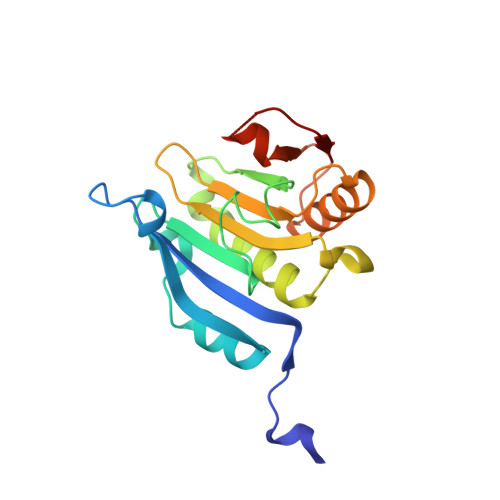Discovery of Lysine-Targeted eIF4E Inhibitors through Covalent Docking.
Wan, X., Yang, T., Cuesta, A., Pang, X., Balius, T.E., Irwin, J.J., Shoichet, B.K., Taunton, J.(2020) J Am Chem Soc 142: 4960-4964
- PubMed: 32105459
- DOI: https://doi.org/10.1021/jacs.9b10377
- Primary Citation of Related Structures:
6U06, 6U09 - PubMed Abstract:
Eukaryotic translation initiation factor 4E (eIF4E) binds the m7GTP cap structure at the 5'-end of mRNAs, stimulating the translation of proteins implicated in cancer cell growth and metastasis. eIF4E is a notoriously challenging target, and most of the reported inhibitors are negatively charged guanine analogues with negligible cell permeability. To overcome these challenges, we envisioned a covalent targeting strategy. As there are no cysteines near the eIF4E cap binding site, we developed a covalent docking approach focused on lysine. Taking advantage of a "make-on-demand" virtual library, we used covalent docking to identify arylsulfonyl fluorides that target a noncatalytic lysine (Lys162) in eIF4E. Guided by cocrystal structures, we elaborated arylsulfonyl fluoride 2 to 12 , which to our knowledge is the first covalent eIF4E inhibitor with cellular activity. In addition to providing a new tool for acutely inactivating eIF4E in cells, our computational approach may offer a general strategy for developing selective lysine-targeted covalent ligands.
















